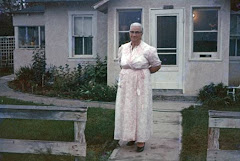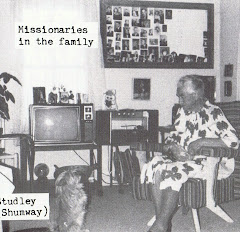

Christmas in Lonely Cabin Brings Own Joy
Mrs. Cleo B. Rogers of Pocatello continues her story of the four youths of Oxford, Idaho who were snowbound in a lonely cabin in Round Valley, Cassia County, in the winter of '65 (1865). John Boyce and his wife, Aunt Polly, had brought the boys to the cabin to feed the sheep wintered there and to the forest to watch the traps for fur bearing animals, the pelts of which were sold to the traders of Ross Fork agency.
***************
That evening Mr. Boyce sat warming his feet at the fireplace to take out the numbness. He explained, "I must start back before daylight in the morning. Your mother is not at all well. Must not lose any time if we are to get a load of provisions back here before the snow flies. Chief Arimo says, 'Early winter, much snow wagon road,' and I believe he knows. Your ma thinks David should go back with me and let Albert stay here till next trip, when we bring the grub and shoes.""Docky, think you'd like that?" smiled the older brother, John.
"Better than anything in all the world," answered the small boy.
Mr. Boyce and David drove away before sunrise the next morning and the four boys who remained watched the wagon as it formed another silhouette, this time against the red, red sky.
Three days after David and his father had gone back to Smithfield, Calvin and John, jr., came back into the cabin after doing their chores.
"Oho, you like snow men," shouted Albert.
The open fire sizzled and sputtered its protest as the boys shook their neuples and scarfs, making them ready to hang on the wooden pegs above the fireplace. It had snowed all night and was still snowing. Already over a foot had fallen.
"We're snowed in," exclaimed Cal, as stood before the fire in the Round Valley cabin. It was a serious situation and he heaved a deep sigh. "Oh, well, the folks had time to get to Smithfield, and they wouldn't be starting back until this morning. They are all right."
As John stood liberally rubbing the home-made soap over his hands, he raised himself to his full height and said with a grin, "And we are all right -- plenty of company, too. Did all of you hear the concert last night? Sounded like it was about 200 strong. Think we can count on coyote serenades all winter. Then we have neighbors -- Ross Fork, only about 70 miles away. Also more neighbors and George's wife, just a stone's throw, 24 miles or so across to Franklin."
Through the corner of his eye John saw that his little brother was having a hard time to keep his chin from quivering, as he thought of what the words 'snowed in' meant.
"Albert Boyce!" John began, but changed his tactics. "Say, little doctor, I can beat you in a game of mumble peg. Three to one you can't beat me. George isn't quite ready for us to eat."
They knelt on the hard-packed floor and tried to play the game but Albert's thoughts wandered.
"John," he ventured in soft tones, "did you see how pa looked like he could almost cry when he said, 'Be good boys.'? Then he rode over the same road they took when ma and pa went, did you look and see the sky was all red, John?' The little boy hitched along the floor to be neared his beloved brother. "Did you hear how his voice shook when he said it again, 'Be good boys'?"
"One way to be good is to get up to this breakfast before those cream biscuits are cold," said the cook.
After the delicious breakfast, Calvin spoke emphathically. "Snow or no snow, must be out looking after the traps. Who wants to go?"
Everyone shouted "I!" So the dishes and food were left on the table, nor did anyone remember to put out the cat. (Not one of the boys could ever again 'abide a cat.' But that has nothing to do with this story.)
Late in the afternoon the boys returned. They entered the cabin and John said, "How long do you think that course is, Cal?"
Calvin hesitated. "If we had only counted the pieces of poisoned meat I could tell you to the very foot. Every piece of meat is 50 feet apart. I have stepped off 50-foot lengths so often for pa I do it without thinking. However, each piece is within sight of the cabin. By pushing out a length of chinking from between the logs we can watch the fun. Dragging that leg of spoiled mutton around the course with us will make every wolf and coyote stop and take notice.
True enough, before sundown a coyote came sniffing along. He sniffed the first bait, then passed to the second, sniffed and then came back to the first. The boys looking through the chink hole snickered. The unsuspecting animal followed the scent of the mutton leg beyond the second bait, which he had returned to and eaten. Then with his characteristic gliding, slinking gait, he started to trot along.
"Gobbles them up line and sinker, doesn't he Cal?" whispered the little boy as he slid his hand into his big brother's large palm. When the light footed coyote had gone around the whole circle and stood wondering which way he wanted to go next, the boys in the cabin felt disappointed and amazed. "Great Scotland up a tree, we've used the wrong bait!" muttered Calvin.
Quickly he reached for the gun. He thrust the muzzle through the chinking space, took careful aim and fired. The coyote dropped dead.
Pell mell, the boys scurried through the door, each wanting to be the first to see where the bullet hit. There was not a mark. The shot had missed. The poisoned bait had taken effect and the shock of hearing the rifle report had caused instant death.
Thus the time passed. Much snow fell and the boys did their daily chores and put in the time the best they could.
_____________________________________________
Source: From the April 19, 1936 issue of "The Idaho Sunday Statesman", found in the Boyce Histories
















